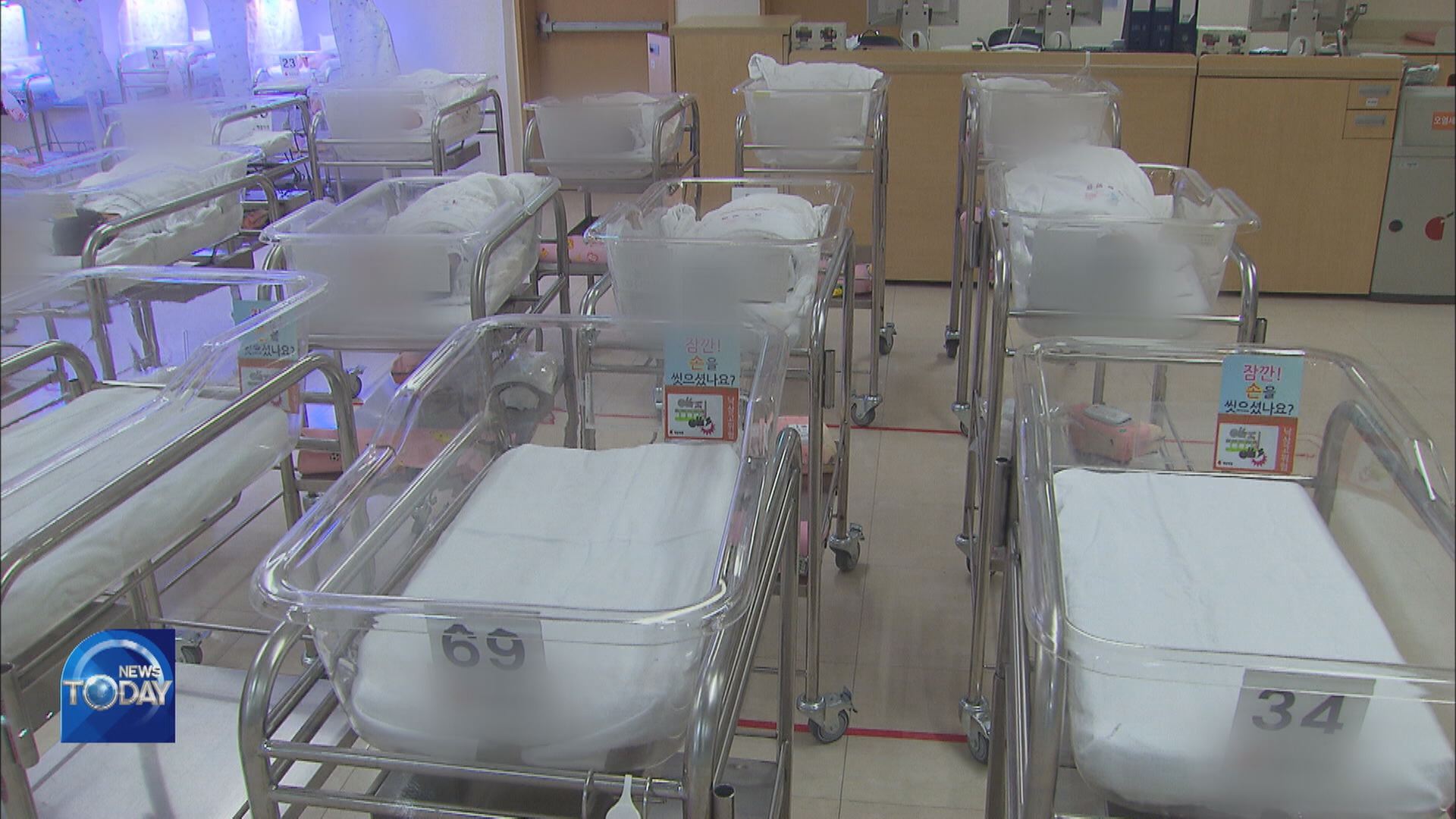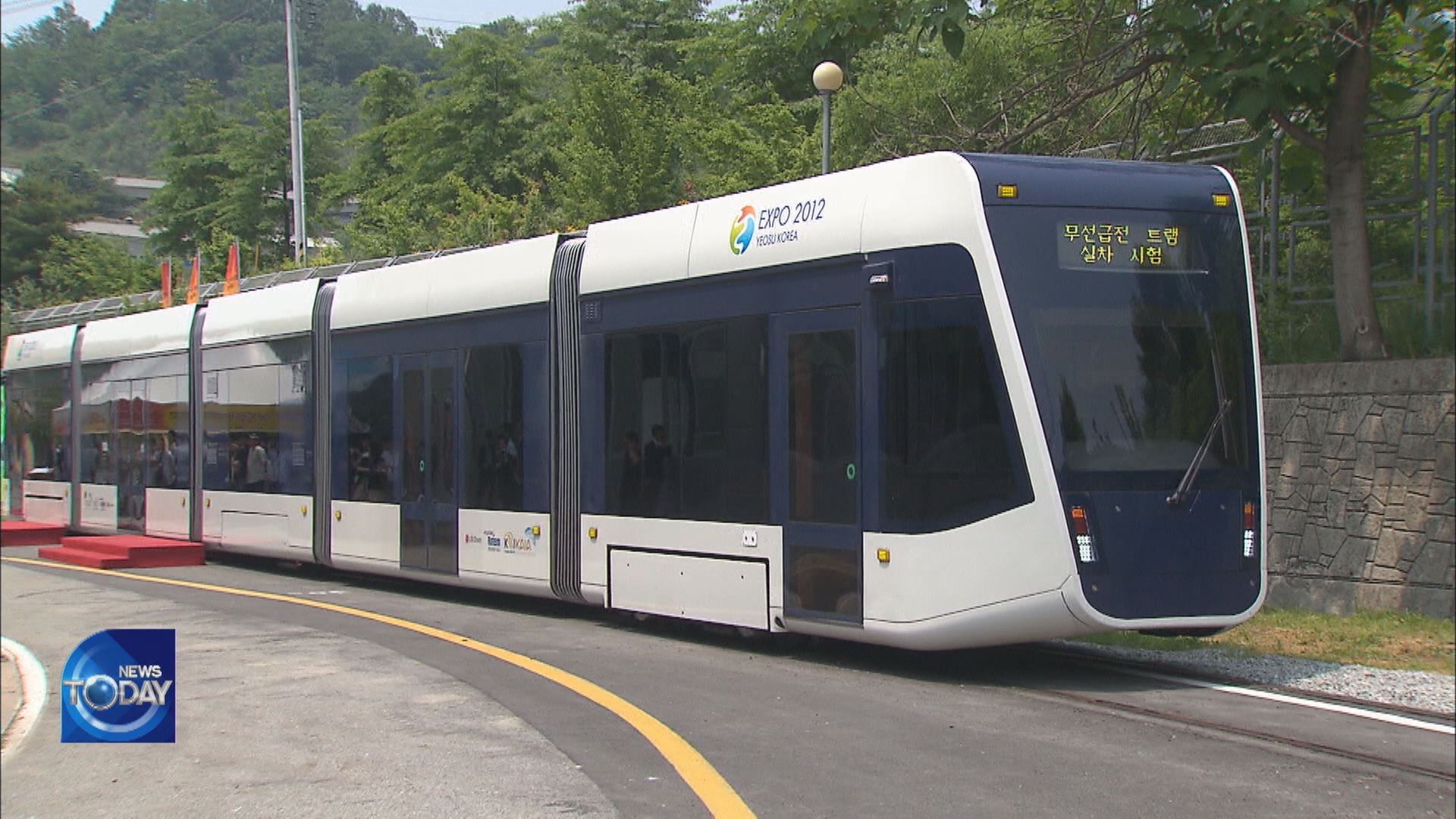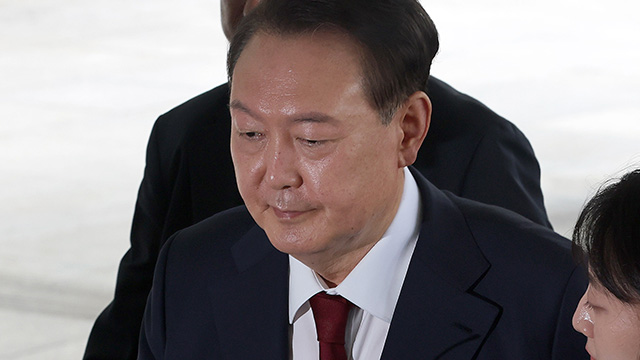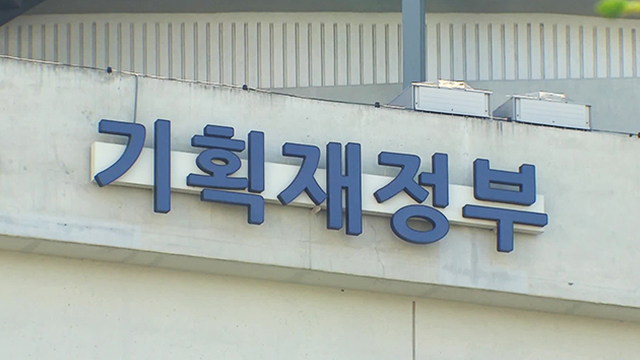GOV’T MEASURES AGAINST SOCIAL ISSUES
입력 2021.03.31 (15:53)
수정 2021.03.31 (18:12)
읽어주기 기능은 크롬기반의
브라우저에서만 사용하실 수 있습니다.
[Anchor Lead]
The government announced that a new infant care allowance program will be put in place next year to boost the country’s dismal birthrate. Also, a trial sickness allowance program will be adopted so workers can take sick leave without worrying about their next pay check.
[Pkg]
The number of new births reported in January and February this year fell about 9% on-year. At this rate, the number of births that dipped below 300,000 last year is very unlikely to reach 250,000 this year. This has prompted the government to introduce an infant allowance program in next year’s budget plan. Currently, the government subsidizes all the costs of infant care for babies under two years old who are looked after at childcare centers. When an infant is taken care of at home, a monthly allowance of 200,000 won is given. These subsidies are going to be replaced by an infant allowance, which is likely to be 300,000 won per month. Also, a set of policies to boost Korea’s low birthrate, such as financial support for childbirth, will be included in the budget plan.
[Soundbite] Ahn Do-geol(Budget Office Director, Finance Ministry) : "It’s hard to say exactly how much funding is needed because we haven’t even started a preliminary feasibility test."
A sickness allowance program may be tried out next year to ensure financial stability even when an individual cannot work due to illness or injury. With these added cash subsidies and existing expenses, next year’s budget plan looks to exceed 600 trillion won. This year’s budget was around 573 trillion won, which included supplementary budgets. The budget plan has prompted the government to emphasize aggressive fiscal management and fiscal innovation.
[Soundbite] Kim Woo-cheol(Prof. Dept. of Science in Taxation, Univ. of Seoul) : "If the government wants to spend more than 600 trillion won when there are little tax revenue increases, next year’s fiscal deficit may remain at around 6% of GDP or grow even larger."
The government decided to first reduce 12 trillion won or 10% of its discretionary spending. Then it will review the sustainability of some projects, such as the employment incentive program that had grown costly amid the pandemic. Government officials, however, still refuse to talk about tax increases, claiming that the issue requires public support first.
The government announced that a new infant care allowance program will be put in place next year to boost the country’s dismal birthrate. Also, a trial sickness allowance program will be adopted so workers can take sick leave without worrying about their next pay check.
[Pkg]
The number of new births reported in January and February this year fell about 9% on-year. At this rate, the number of births that dipped below 300,000 last year is very unlikely to reach 250,000 this year. This has prompted the government to introduce an infant allowance program in next year’s budget plan. Currently, the government subsidizes all the costs of infant care for babies under two years old who are looked after at childcare centers. When an infant is taken care of at home, a monthly allowance of 200,000 won is given. These subsidies are going to be replaced by an infant allowance, which is likely to be 300,000 won per month. Also, a set of policies to boost Korea’s low birthrate, such as financial support for childbirth, will be included in the budget plan.
[Soundbite] Ahn Do-geol(Budget Office Director, Finance Ministry) : "It’s hard to say exactly how much funding is needed because we haven’t even started a preliminary feasibility test."
A sickness allowance program may be tried out next year to ensure financial stability even when an individual cannot work due to illness or injury. With these added cash subsidies and existing expenses, next year’s budget plan looks to exceed 600 trillion won. This year’s budget was around 573 trillion won, which included supplementary budgets. The budget plan has prompted the government to emphasize aggressive fiscal management and fiscal innovation.
[Soundbite] Kim Woo-cheol(Prof. Dept. of Science in Taxation, Univ. of Seoul) : "If the government wants to spend more than 600 trillion won when there are little tax revenue increases, next year’s fiscal deficit may remain at around 6% of GDP or grow even larger."
The government decided to first reduce 12 trillion won or 10% of its discretionary spending. Then it will review the sustainability of some projects, such as the employment incentive program that had grown costly amid the pandemic. Government officials, however, still refuse to talk about tax increases, claiming that the issue requires public support first.
■ 제보하기
▷ 카카오톡 : 'KBS제보' 검색, 채널 추가
▷ 전화 : 02-781-1234, 4444
▷ 이메일 : kbs1234@kbs.co.kr
▷ 유튜브, 네이버, 카카오에서도 KBS뉴스를 구독해주세요!
- GOV’T MEASURES AGAINST SOCIAL ISSUES
-
- 입력 2021-03-31 15:53:40
- 수정2021-03-31 18:12:39

[Anchor Lead]
The government announced that a new infant care allowance program will be put in place next year to boost the country’s dismal birthrate. Also, a trial sickness allowance program will be adopted so workers can take sick leave without worrying about their next pay check.
[Pkg]
The number of new births reported in January and February this year fell about 9% on-year. At this rate, the number of births that dipped below 300,000 last year is very unlikely to reach 250,000 this year. This has prompted the government to introduce an infant allowance program in next year’s budget plan. Currently, the government subsidizes all the costs of infant care for babies under two years old who are looked after at childcare centers. When an infant is taken care of at home, a monthly allowance of 200,000 won is given. These subsidies are going to be replaced by an infant allowance, which is likely to be 300,000 won per month. Also, a set of policies to boost Korea’s low birthrate, such as financial support for childbirth, will be included in the budget plan.
[Soundbite] Ahn Do-geol(Budget Office Director, Finance Ministry) : "It’s hard to say exactly how much funding is needed because we haven’t even started a preliminary feasibility test."
A sickness allowance program may be tried out next year to ensure financial stability even when an individual cannot work due to illness or injury. With these added cash subsidies and existing expenses, next year’s budget plan looks to exceed 600 trillion won. This year’s budget was around 573 trillion won, which included supplementary budgets. The budget plan has prompted the government to emphasize aggressive fiscal management and fiscal innovation.
[Soundbite] Kim Woo-cheol(Prof. Dept. of Science in Taxation, Univ. of Seoul) : "If the government wants to spend more than 600 trillion won when there are little tax revenue increases, next year’s fiscal deficit may remain at around 6% of GDP or grow even larger."
The government decided to first reduce 12 trillion won or 10% of its discretionary spending. Then it will review the sustainability of some projects, such as the employment incentive program that had grown costly amid the pandemic. Government officials, however, still refuse to talk about tax increases, claiming that the issue requires public support first.
The government announced that a new infant care allowance program will be put in place next year to boost the country’s dismal birthrate. Also, a trial sickness allowance program will be adopted so workers can take sick leave without worrying about their next pay check.
[Pkg]
The number of new births reported in January and February this year fell about 9% on-year. At this rate, the number of births that dipped below 300,000 last year is very unlikely to reach 250,000 this year. This has prompted the government to introduce an infant allowance program in next year’s budget plan. Currently, the government subsidizes all the costs of infant care for babies under two years old who are looked after at childcare centers. When an infant is taken care of at home, a monthly allowance of 200,000 won is given. These subsidies are going to be replaced by an infant allowance, which is likely to be 300,000 won per month. Also, a set of policies to boost Korea’s low birthrate, such as financial support for childbirth, will be included in the budget plan.
[Soundbite] Ahn Do-geol(Budget Office Director, Finance Ministry) : "It’s hard to say exactly how much funding is needed because we haven’t even started a preliminary feasibility test."
A sickness allowance program may be tried out next year to ensure financial stability even when an individual cannot work due to illness or injury. With these added cash subsidies and existing expenses, next year’s budget plan looks to exceed 600 trillion won. This year’s budget was around 573 trillion won, which included supplementary budgets. The budget plan has prompted the government to emphasize aggressive fiscal management and fiscal innovation.
[Soundbite] Kim Woo-cheol(Prof. Dept. of Science in Taxation, Univ. of Seoul) : "If the government wants to spend more than 600 trillion won when there are little tax revenue increases, next year’s fiscal deficit may remain at around 6% of GDP or grow even larger."
The government decided to first reduce 12 trillion won or 10% of its discretionary spending. Then it will review the sustainability of some projects, such as the employment incentive program that had grown costly amid the pandemic. Government officials, however, still refuse to talk about tax increases, claiming that the issue requires public support first.
이 기사가 좋으셨다면
-
좋아요
0
-
응원해요
0
-
후속 원해요
0













![[속보] 정성호 법무장관 후보자 “검찰 해체 표현 적절치 않아…국민 눈높이 맞는 개혁 이뤄야”](/data/layer/904/2025/07/20250701_86evyp.png)



이 기사에 대한 의견을 남겨주세요.